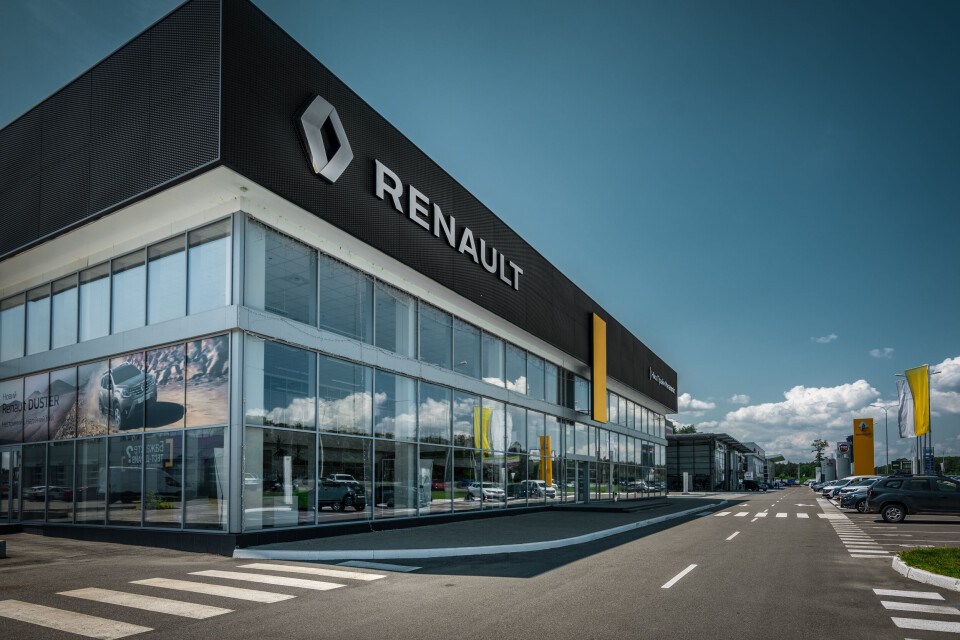-
Phone-at-wheel crackdown on drivers in south-west France
Immediate licence suspensions introduced for offence in three departments
-
Mysterious boom rattles residents in south-west France
'The shockwave clearly went sightseeing across the countryside', says local
-
France tightens reimbursement rules for flight delays or cancellations
New measures include mandatory mediation and new claim procedures
French company Renault pulls out of Russia: Why has it taken so long?
It comes as a report shows nearly 50% of all top French companies operating in Russia have not made any move to withdraw or reduce activity there

French car manufacturer Renault has pulled out of Russia following the country’s internationally condemned invasion of Ukraine in February.
Renault Group released a statement on Monday (May 16) announcing the withdrawal. It said that it has left the door open to returning to the Russian market within the next six years.
"Today, we have taken a difficult but necessary decision; and we are making a responsible choice towards our 45,000 employees in Russia, while preserving the Group's performance and our ability to return to the country in the future, in a different context,” Luca de Meo, CEO of the Renault Group, wrote in a statement.
“I am confident in the Renault Group's ability to further accelerate its transformation and exceed its mid-term targets," he added.
The withdrawal includes a deal to sell 100% of its €2.2billion Russian business to state entities for a symbolically low price.
This includes a 67.69% stake in Avtovaz, which produces the popular Soviet-era car brand Lada, to NAMI (the Central Research and Development Automobile and Engine Institute).
Bernard Jullien, a French economist and expert in the automobile industry, told Le Journal du Dimanche (JDD) that the withdrawal is “bad news for Renault”.
“Of the 2.5 million vehicles sold each year by the group, 500,000 were sold in Russia,” he said.
“Half of the profits for the year 2022 will be wiped out and it will be difficult to finish the year with a positive result so in accounting terms, it's very brutal.”
He said that this financial entanglement was one reason the group could not pull out of Russia as quickly as other companies. One of Renault’s competitors Stellantis - the parent company of the former PSA Peugeot Citroen group - withdrew from Russia in April.
Read more: French sports brand Decathlon to close its shops in Russia
Read more: French group Auchan defends decision to stay in Russia as ‘human’
But the consequences of Renault leaving the Russian market go deeper than financial implications, Mr Jullien said.
“Renault has been trying to establish itself outside Europe for 25 years. And Russia has been a sort of pilot market that has served as a model for setting up elsewhere. Monday's announcement formalises the failure of a whole strategy,” he said.
"We must not overlook the trauma that this will cause to a large number of [the company’s] staff.”
The withdrawal may also impact Renault’s relationship with allied company Nissan. Five years ago Renault was valued at €30billion but is now only worth €6.68billion, the JDD reports.
“Eight years ago, Renault was faring worse than its Japanese ally but the acquisition of the Russian constructor Avtovaz enabled it to reverse the roles and to regain the ascendancy over [Nissan],” Mr Jullien said.
“Today, the issue of the superiority complex with Nissan, which is doing better in terms of profitability and will also do better in terms of sales volume, risks returning.”
Renault’s reputation has also been tarnished in recent years after the arrest of Carlos Ghosn.
Ghosn is the former head of the Nissan-Renault alliance but he has been under investigation for money laundering and abuse of company assets since 2018.
In 2019, after being arrested for a second time in Japan, Ghosn fled the country by hiding in a musical instrument box and escaped to Lebanon, where he remains a wanted man.
In April this year, French prosecutors issued an international arrest warrant for him.
French companies still in Russia
An ongoing study into international companies operating in Russia lists 53 French companies that have or had business in Russia.
The study has been put together by Jeffrey Sonnenfeld and a team at the Yale Chief Executive Leadership Institute, an NGO affiliated with Yale University.
It places companies into five categories:
Companies that are just continuing business-as-usual in Russia
Companies postponing future planned investment/development/marketing while continuing substantive business
Companies that are scaling back some significant business operations but continuing some others
Companies temporarily curtailing most or nearly all operations while keeping return options open
Companies totally halting Russian engagements or completely exiting Russia
In total, 25 French companies fall into category one, including Auchan, Lacoste and Leroy Merlin.
There are 13 companies in category two, including BlaBlaCar, Danone and Sanofi.
There are four companies in category three, 22 companies in category four and nine companies in category five.
The companies in category five include the bank Société Générale (through investment into a Russian bank) and video game publisher Gameloft.
The companies who are continuing on as usual have given various different reasons for the decision, including loyalty to Russian staff and a need to provide essential services.
Yves Claude, the CEO of Auchan, has said the company’s choice to stay in Russia is a “human decision”.
He told Le Journal du Dimanche: “It is easy to criticise us but we are here, we are standing up and working for the civilian population.”
Read more: French group Auchan defends decision to stay in Russia as ‘human’
Related articles
France should ‘no longer need Russian gas within three to four years’
French sports brand Decathlon to close its shops in Russia
https://www.connexionfrance.com/article/French-news/An-Auchan-supermarket-sign-in-Russia
























